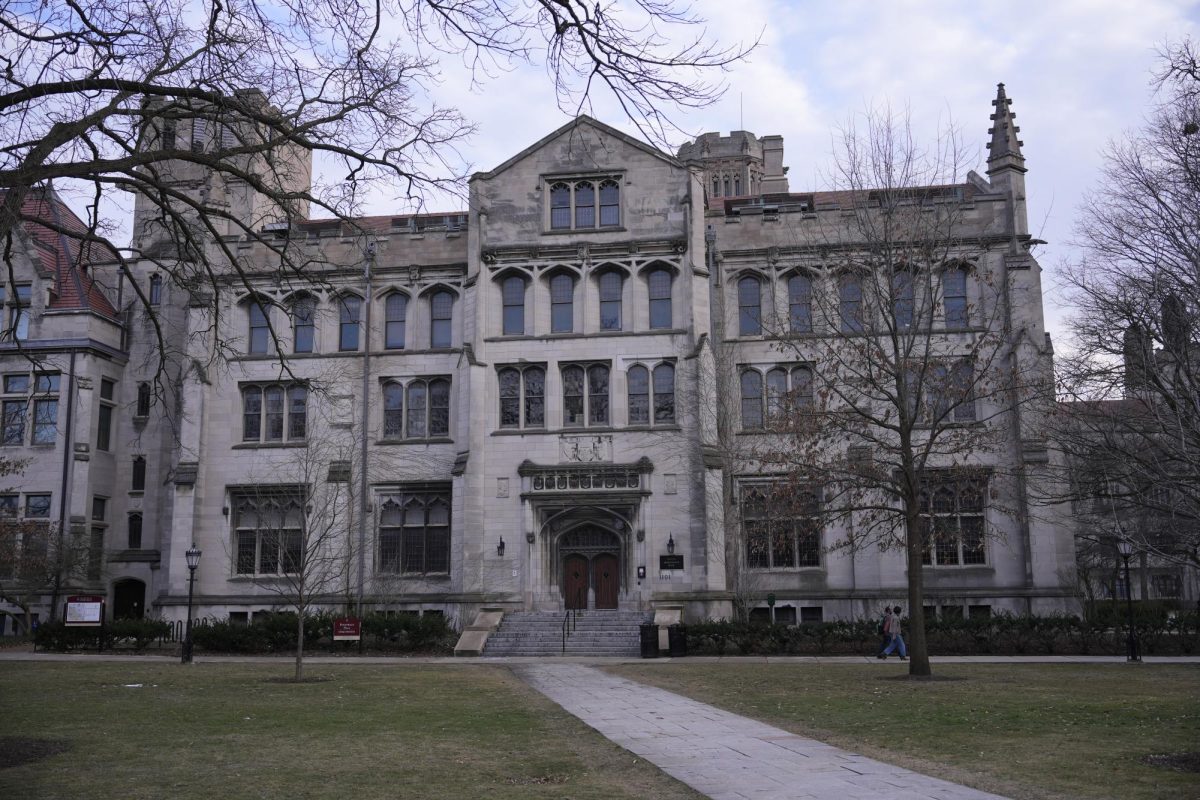This weekend, University Chorus and Motet Choir will be singing about Kristallnacht (the 1938 pogrom marking the beginning of the Holocaust), accompanied by the University Symphony Orchestra. The piece, Michael Tippett’s A Child of Our Time, deliberately makes listeners uncomfortable. The listener is confronted by the fact that the Nazis were human too, and is forced to realize that we cannot simply assume that we will always be on the right side of history. But in writing about the events of Kristallnacht, Tippett has created a narrative that is too simple to be constructive. Because the piece leaves the listener complacent, both performing and listening to it is unproductive.
The most immediately disturbing parts of A Child of Our Time, both for the performers and for the listeners, are the passages of the song written from the point of the view of the Nazis. Tippett includes these perspectives in order to force listeners to realize that the Nazis were not inhuman, that they were people just like us. We are not used to hearing Nazi beliefs promoting violence spoken aloud, especially with no attempt to distance ourselves from their adherents. There is no separation on stage between the Nazis and the oppressed Jews. This forces us to question our ingrained belief that the Nazis are nothing like us, and that we could never be anything like them. This tension is uncomfortable yet productive: Only by recognizing that we, too, could commit atrocities can we consciously choose not to. We cannot ensure that we are on the right side of history if we believe we could never be in the wrong.
While this tension forces us to constructively reckon with an uncomfortable truth, it is undermined by the rest of the piece, which leaves us all too comfortable. A Child of Our Time creates a narrative out of Kristallnacht, with a defined beginning, middle, and end, making the events of the Holocaust easier to process. This simple narrative structure has no productive tension; instead, it leads to its hopeful conclusion with a sense of inevitability. Even in the dark middle movement, we as listeners know there will be an end; we always have the certainty of a musical conclusion. When the music resolves, we find a hopeful ending, in which humanity understands both its "darkness and [its] light," as the text of the piece claims. The oncoming winter referenced at the beginning of the piece is mirrored by references to spring at the end. The inevitability of this ending regardless of our actions invalidates the tension the piece tries to convey.
Problematically, this ending is not true to the lived experience of Jews and makes Kristallnacht all too easy for us to process. It is not Tippett’s job to make the atrocities of the Holocaust palatable, to create a gooey “happily ever after” ending. In fact, this only trivializes the horrific realities of the Holocaust itself. Singing from the point of view of oppressed German Jews, we do not have the right to impose a happy ending to make the events more comprehensible. We do not have the right to impose deep spiritual meaning to make Kristallnacht more understandable. In doing so, A Child of Our Time devalues the actual experiences of the people it seeks to represent, who did not have the benefit of hindsight and a clearly demarcated end to look forward to.
A Child of Our Time was composed in 1939, a year after Kristallnacht but before the worst of the Holocaust. In this context, the imposed happy ending seems even more inappropriate. While Tippett may not have known the events that would follow, we certainly do. Indeed, we can justify performing this piece even less now than he could then. With the knowledge that Tippett’s hope is premature, the piece’s resolution seems even more artificially tidy and overly simplistic. Singing this piece today is both inappropriate and insensitive. We aren’t joining "in a stirring call for understanding," as the flyer advertising the concert claims. We’re attempting to smooth over the past by pretending that everything turned out all right in the end.
Tippett undermines his own ends in other ways as well. The piece is composed around a series of traditional Black spirituals, attempting to create empathy for the Jewish people by comparing them to oppressed Christians. This idea is deeply flawed. It implies that the only way Tippett can “humanize” Jews for his audience is by comparing them to Christians, which undermines any message of universal human empathy that Tippett might have hoped to convey.
Tippett’s arrangement of the spirituals in A Child of Our Time also does a disservice to Black American musical and cultural tradition. The spirituals are simplified from the original, and were intended by Tippett to be performed in the style of traditional Western choral music. To Tippett, the interspersed spirituals about slavery would serve to lessen the weight of the rest of the piece. (One wonders how spirituals about slavery can lessen the weight of any piece of music.) To the credit of the choral directors, the spirituals in this week’s performance are sung more authentically than how Tippett had intended. We attempt in good faith to reflect the spirituals’ own depth and history and suffering. Yet because of Tippett’s modification to fit traditional Western standards, they are still not fully authentic, and we cannot give them the performance they deserve. Instead of being performed and heard in their own right, the spirituals are used as a mere tool to aid in the construction of a different narrative, one that they have little connection to.
I don’t mean to devalue the immense amount of work that the musicians have put into this concert. The piece is both technically and emotionally demanding. Practicing it is draining, even more so because of the myriad of ethical questions it raises: At every turn we are forced to reconcile our beliefs with the words we’re singing. But in the end, this emotional effort is tragically misplaced: I don’t believe we’ve created something to be proud of. A Child of Our Time does not raise the questions it intended to. Rather, it leaves the listener upset about the existence of Nazis, yet complacent as they wait for an inevitable, happy ending. The concert is not productive and is not worth your while.
Aware Deshmukh is a second-year in the College, and is in University Chorus.







